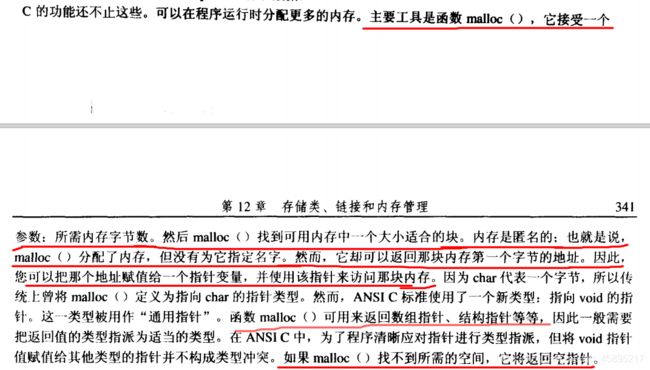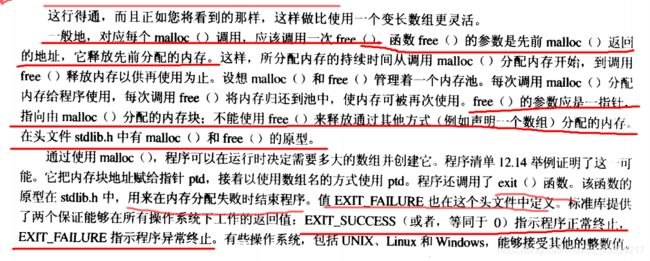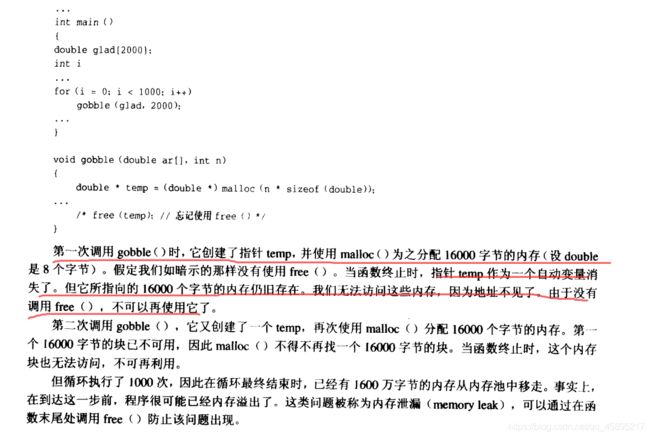malloc函数
malloc函数动态分配数组,free释放内存
//动态数组
#include上面的代码是用malloc函数动态分配了一个double型数组也可以将其分配给一个int型数组。
而 malloc 则必须由我们计算要字节数,而且在返回后强行转换为实际类型的指针。
int* p;
p = (int *) malloc (sizeof(int));
第一、malloc 函数返回的是 void * 类型,假设你写成:p = malloc (sizeof (int)); 则程序无法通过编译,报错:“不能将 void* 赋值给 int * 类型变量”。所以必须通过 (int *) 来将强制转换。
第二、函数的实參为 sizeof (int) ,用于指明一个整型数据须要的大小。假设你写成:
int* p = (int *) malloc (1);
代码也能通过编译,但其实仅仅分配了 1 个字节大小的内存空间,当你往里头存入一个整数,就会有 3 个字节无家可归,而直接 “住进邻居家”!造成的结果是后面的内存中原有数据内容所有被清空。
关于上面代码一些解释:



需要把指针类型修改为int,malloc函数这样写:ptd = (int *)malloc(max * sizeof(int));输出的也要更改为%d
int * ptd;
ptd =(int *)malloc(max *sizeof(int));
free()函数的重要性
malloc函数在动态分配数组空间时,只会增大空间,不会减小空间,所以说如果不释放内存,可能会造成内存溢出。因为如果地址没了,内存被占了但是还无法调用,就很难受
eg
